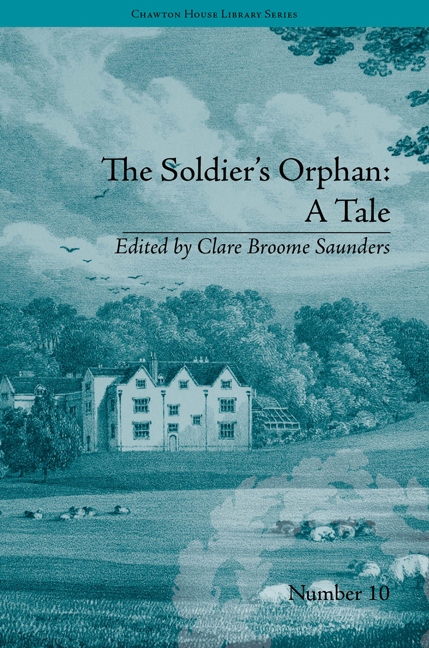Book contents
CHAP. IV
from The Soldier's Orphan: A Tale
Summary
Her act did not o'ertake her bad intent;
And must be buried, but as an intent
That perish'd by the way: thoughts are no subjects;
Intents but merely thoughts.
Shakespear.Louisa received no injury from the accident, except that occasioned by terror; from which she was soon restored by the person in the chaise which had caused her alarm, who instantly leaped out, and flew to rescue the ladies from their perilous situation: he bore Louisa in his arms, and seating her in his carriage, returned to her companion, who lay without any appearance of life. The stranger having placed her by the side of Louisa, applied himself to staunch the blood which flowed profusely from a large wound in her temple. Having succeeded,/ he endeavoured with Louisa's assistance to restore her senses; but without effect, till the motion of the carriage (which the stranger had ordered to proceed to the nearest place likely to afford assistance), by causing the most excruciating pain, awoke her to a sense of her misfortune. Uttering a deep groan, she opened her eyes, and, fixing them for a moment on Louisa, (who, with a look of the utmost pity for her sufferings, was trying to alleviate them), she again closed them with a sigh of mental anguish, apparently more hard to bear than that which was occasioned by her wound.
The stranger observing her emotion, and supposing it arose from a fear that her young companion, (whose clothes were stained with the blood which had flowed from her wound,) was hurt, entreated her in the most soothing tone to be composed. As the young lady had/ not received the slightest injury; but was suffering under the greatest anxiety on her account, which, he hoped, would be soon relieved, if she could bear the motion of the chaise till they arrived at the town now in sight; where he had no doubt surgical assistance could be procured, and she would soon be restored to ease.
- Type
- Chapter
- Information
- The Soldier's Orphan: A Taleby Mrs Costello, pp. 176 - 182Publisher: Pickering & ChattoFirst published in: 2014



